The 5 Best Roofing Companies in Fayetteville, NC for 2024
How do you find the best roofers? Ask an experienced roofing contractor who knows all the other roofing contractors in Fayetteville NC!
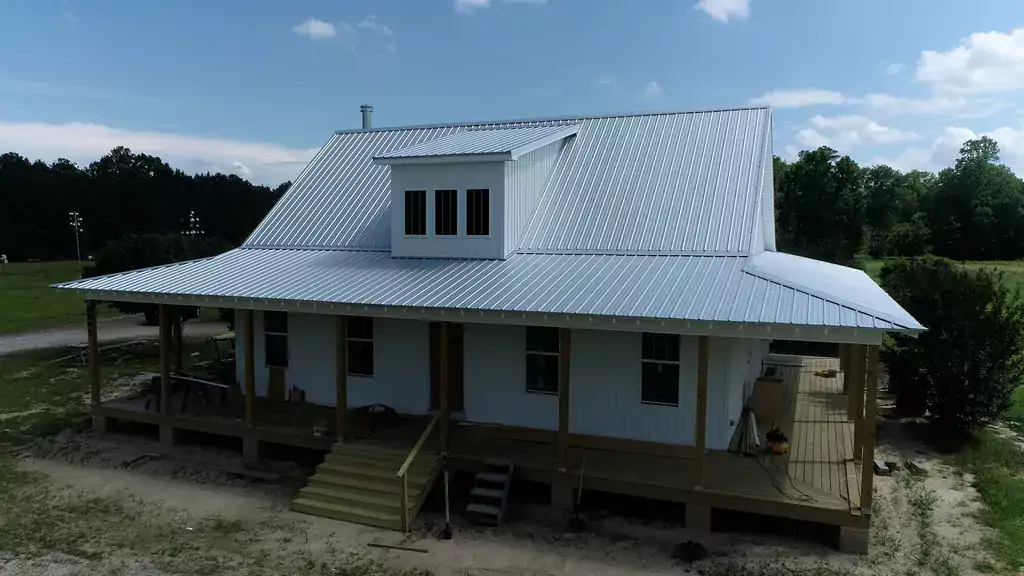
Roofs, especially metal roofs, are subject to all kinds of myths that developed from all kinds of early American folklore.
One of the most persistent myths surrounding metal roofing is that it will make your house more likely to be struck by lightning.
Not only can we prove that this isn’t true, but metal roofing may actually help protect your home from disaster if lightning does strike it.
On Tops Roofing has been repairing and replacing all kinds of roofs in the Raleigh, NC area for over 30 years. While we most frequently install asphalt shingle roofs, we want to help clear up any kind of confusion or misconceptions that homeowners may have about the roofing industry, which is why we decided to write this article!
In today’s blog, we’ll be talking about:
Let’s get started!
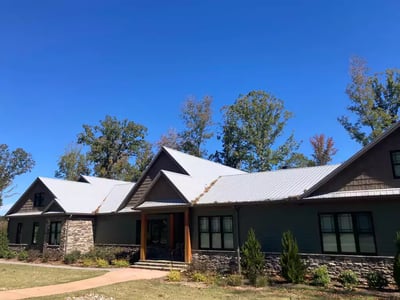
As we talked about in the intro, the short answer is no, metal roofs do not attract lightning more than any other kind of roofing material.
In fact, no roofing material really “attracts” lightning at all. When the static electricity forms in the sky, it has to find somewhere to go, which is why it shoots down and strikes the earth. In the process of doing that, all it wants to do is find whatever is closest to it, to get to the ground as quickly as possible.
This is why lightning strikes tall objects and buildings more than it does things on the ground, unless those things are in a wide open, flat space. Lightning rods are made of metal, yes, but that metal doesn’t actually attract it, the height does. They are made with metal to safely conduct the electricity into the ground, instead of stopping it.
The only time that lightning would strike your metal roof is if there were no taller trees, buildings, or hills around it, and in those situations, your home would be struck regardless of the material on top of it.
In that situation, however, if you had a metal roof, you may stand a better chance at avoiding significant damage, which is what we’re going to break down in the next section.
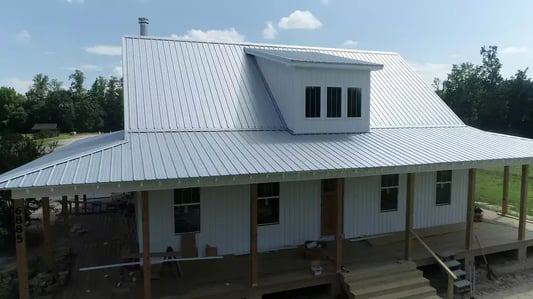
Like we talked about earlier with the lightning rod example, metal is a great conductor of electricity, which is why we tend to discourage our kids from putting a fork into an electrical socket.
When that metal is anchored to the ground however, it be great to channel the electricity away from things we hold dear.
In that same way, metal roofs can help channel lightning to the ground in the event of a strike. If you had a different kind of roofing material, like asphalt or wood, they may catch on fire, or even explode, when hit by that blast of electricity. Metal on the other hand, is non-combustible, so neither of those things will occur with a metal roof.
That being said, without a proper lightning protection system in place, lightning can still potentially damage the structure of your home. Lightning protection systems are designed to create a consistent link between the top of your roof, where lightning would strike, and the ground, where it wants to go. That way, if your roof is struck, the system would pull the lightning into the ground, and prevent damage from occurring in your home. So if you live in an area with frequent electrical storms, you may want to consider having something like this installed on your home.
Now that we’ve talked about what might happen when lightning strikes your roof, let’s revisit what else happens during most storms, rain!
People are always worried about what a metal roof might sound like when it gets hit by heavy rain and hail, even if they’ve never been under one themselves.
The short answer is: It depends. Metal roofs without much else, such as an open frame roof on a barn or warehouse, would be WAY louder than an asphalt shingle system. But, with a modern metal roofing system, properly installed, rain noise would be much more comparable to what we see in an asphalt shingle roof.
The idea that metal roofs are noisy comes from those open frame barn roofs. For a long time, metal was primarily used for roofs in rural, agricultural settings. Metal roofs are quite durable, so for these buildings that were not inhabited daily, like barns, the noise trade-off was totally worth it.
Unfortunately, that noise reverberated across the country, creating a negative perception of metal roofs that lasts to this day, despite major leaps that have been made within the industry.
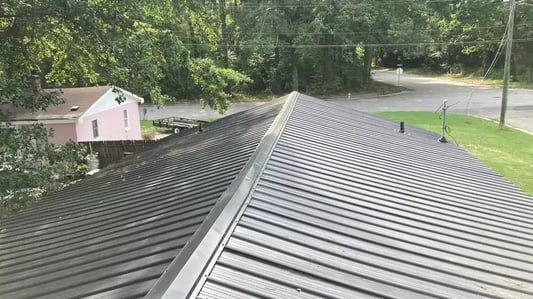
No longer are they a sheet of metal nailed to a stud or frame. Today’s metal roofing systems are not open framed.
Most houses have a plywood or oriented strand board (OSB) roof deck that roofing materials are attached to, including shingles and metal. In the case of metal, the decking would help deaden the noise of rain. Most metal roofing systems are also installed over some kind of underlayment, whether it be an extra layer of insulation between the panels and decking, or the pre-existing shingles that the metal was installed over.
All of these newer innovations and methods work in tandem to reduce the noise created by rain on a metal roof. It won’t be completely silent, but it will be much closer to the noise experienced by an asphalt shingle roof.
Hopefully this blog has been able to scratch your metal roofing itch, but if it hasn’t check out our blog on the Things to Know About Metal Roofing in Raleigh, NC!
There, we discuss the main types of metal roofs, the cost of installing one, the lifespan of a metal roof, and much more!
On Tops Roofing has been installing metal roofs over the Triangle area since 1991, and is one of the largest, and most experienced roofing companies in Raleigh.

How do you find the best roofers? Ask an experienced roofing contractor who knows all the other roofing contractors in Fayetteville NC!
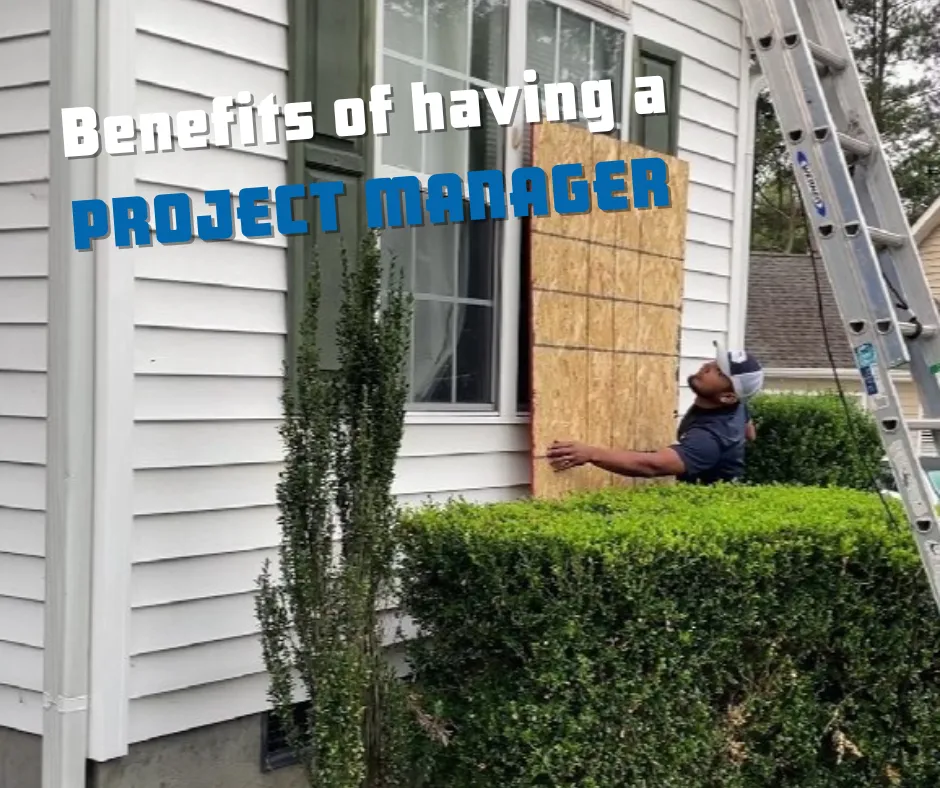
A roof replacement is a substantial undertaking, and the key to a successful project often lies in the hands of the project manager. This individual...
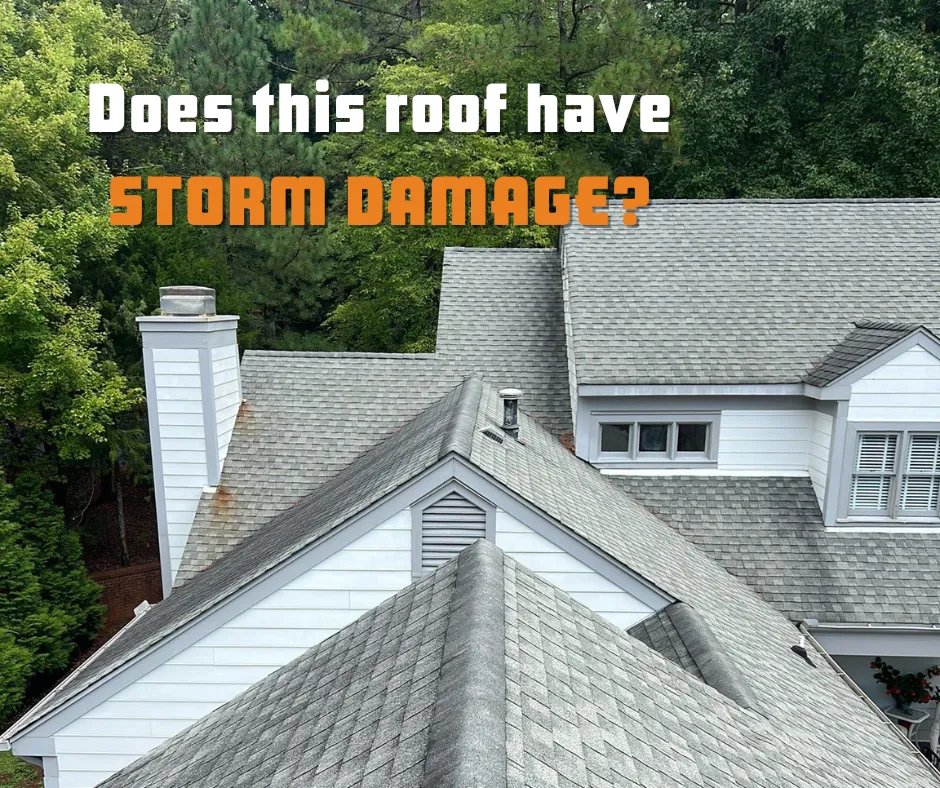
If you’ve recently experienced a storm, you should probably take some time to investigate your roof for signs of damage left by that storm.